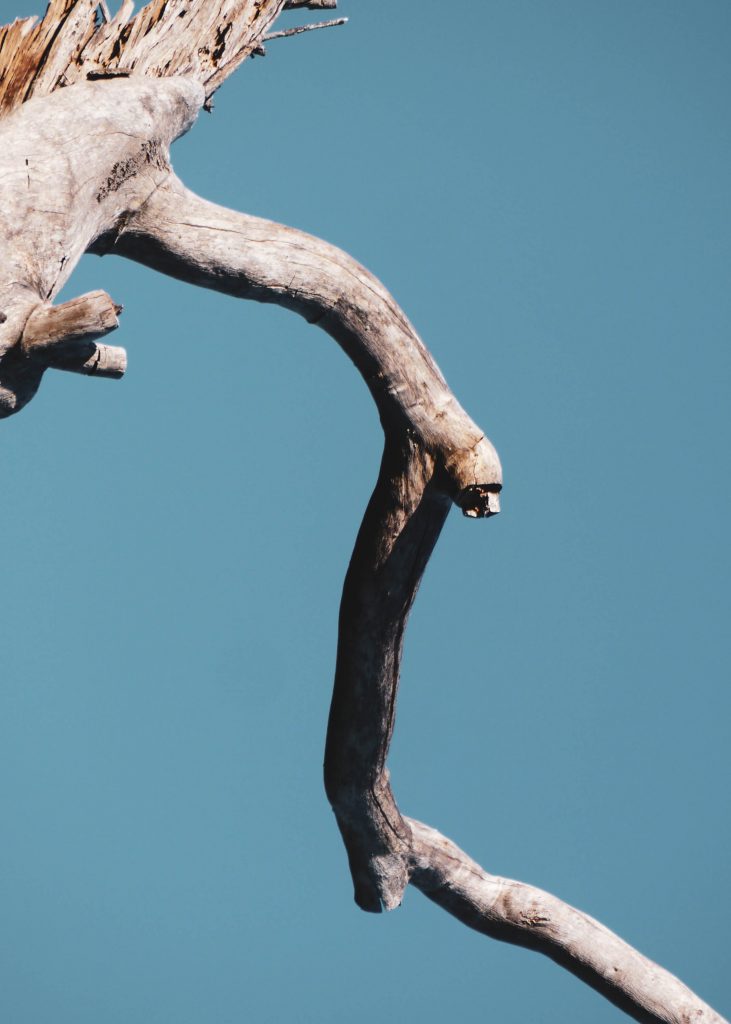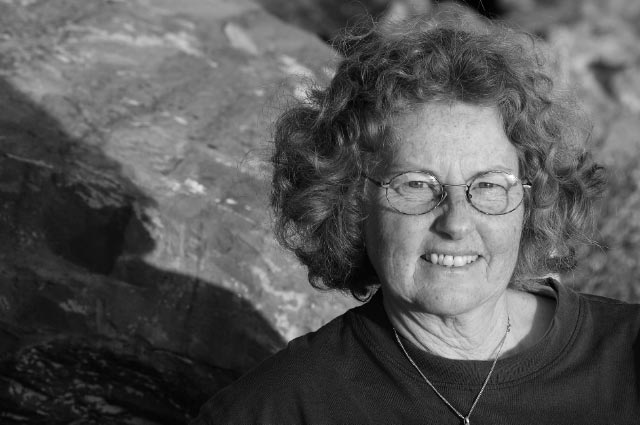Tim Hollo’s Living Democracy – An ecological manifesto for the end of the world as we know it is a significant book for all those concerned about the fate of our precious little planet, and those, like me, who are worried about the legacy we’re leaving for our grandchildren and theirs.
In his book, Tim canvasses the pressing issues of our times, and manages to find positive ways to respond to a series of dilemmas we face. The book is inspiring. And it’s easy to read, with a touch of whimsy here and there, as readers might expect from a musician, who is also a dad, and an active member of his community, as well as a diligent researcher, a creative writer, a great storyteller, and a thoughtful political analyst. Here is Tim giving us valuable background material to inform our journey.
Because that’s what we’re engaged in – a journey, and it’s like no other – through the quagmire of many mistakes made over the last few centuries, when capitalism went rampant, and peoples’ lives were so often removed from the building blocks of community, when much of humanity lost touch with the very essence of our beings, in denial about what’s really important in living the best lives we can.
Tim writes “…the journey is the destination, the means is the end. We change the world, while operating in it as it currently is, by living in it as we wish it to be, making life better in our communities as we work to make life better for everyone” (252).
Not that Tim suggests that he has all the answers, but there are many useful pointers to help us understand better how the global community has reached what is possibly the nadir of human affairs. And many ideas to help us navigate our way through, to nurture the fragile flower of our relative democracy.
Throughout the book, Tim is respectful of Indigenous cultures, including the oldest living culture in the world in what we now know as Australia – people who haven’t lost their way in the whole scheme of things, and from whom settler communities will need to learn a great deal.
“Any project for survival, and for a better way of living, must learn from, listen to, and follow Indigenous people. One of the vital concepts we can and must learn from them, as we’ll explore, is what I think of as ‘ecological thinking’: recognising the fundamental interconnectedness of all things, appreciating that each of us is a precious part of a grand interdependent whole. And, at this moment in history, we are all getting an object lesson in that fact” (4)
Tim offers a starting point for our discernment – that of an ecological community, where we acknowledge and respect the inter-connectedness of everything. This is fundamental to our management of problems, both at the local level, like the Buy Nothing campaign he instigated, to the much broader sweep of international affairs, like giving natural phenomenon legal standing, as Bolivia and Ecuador have done in honouring Pacha Mama in their constitutions.
I am reminded of Joanna Macy and Chris Johnstone’s book Active Hope, subtitled: How to face the mess we’re in without going crazy – we mustn’t shy away from the reality of our plight, but find ways of positively engaging, building community to cope with the issues we face.
State capture
One of the bugbears we must confront is “the corporate capture of the machinery of state. Living democracy needs that to end” Tim writes (109). This is not new or surprising – it’s all too familiar, as outlined in dramatic case studies in the Australian Democracy Network’s report Confronting State Capture
Chapter and verse about the fossil fuel industry and the arms industry leave us in no doubt about the prevalence and danger of this model. As Tim points out, this way of operating is not sustainable, but he doesn’t leave us feeling hopeless against these juggernauts. His chapter on exercising economy makes clear that the growth economy model must end, that we must support polycentric models that cultivate inter-dependence. Again, it’s about building community, for example by introducing the Universal Basic Income which necessitates asking pointy questions about work, and what we really value.
We are challenged to flip our economy from one which drives constant extraction of scarce resources into one which cultivates shared, abundant value – a living economy intertwined with our living democracy. That takes engagement from the personal level to community action.
Practising Peace
I particularly appreciate the section on practising peace: from coercion to coexistence. It’s rich with wonderful historic references to some of the greatest proponents of nonviolence and clearly demonstrates that cooperation is not only desirable as an antidote to violence, but that peace is an absolute possibility, given the will and ability of the populace to fully engage in acting in concert with each other. Conversely, Tim claims that “war, at its core, is a failure of democracy,” relying on disconnection, domination, dispossession (174).
This is a very salient message as our great friend and ally gears up for yet another stupid, pointless and expensive war, with Australia at its forefront. We must resist this with every fibre of our bodies. Our personal integrity demands nothing less. Loss of lives, and not only in the human sphere, loss of biodiversity, and gross emissions of carbon are almost incalculable in war scenarios. Not to mention that so much of the trillions wasted on weapons, whether they’re used in warfare or not, are a theft from the homeless, and the many other disadvantaged sectors in our community.
Change is a certainty for all of us. We are gifted some wonderful examples of citizens collectively working for change when they realised that the authorities were ignoring them, from the Barcelona en Comu, which through building trust at the people-to-people level, gained community control of their city, to the stunning victory of the Voices for Indi campaign, based on listening in small groups to something approaching community consensus. Of course, we know that this example was followed successfully by various of the Teal candidates in the 2022 election. And it’s what the Greens practised so successfully in Brisbane in that same election.
Tim writes about the journey being the destination, which is important to remember when we might be in a rush to upset powerful applecarts – the initial trust building at the start of any campaign is crucial. And continuing to respect disparate voices as the work unfolds. I like the way Tim claims that it’s the end of the world as we know it, “and I feel fine.” Obviously, he’s managed to build fun and nurturing into activities undertaken along the way to change. Too often we’re afraid to be bold. What this discussion shows is that boldness is a significant key to a satisfying life.
I try to keep up with the latest from adventurous Greens, so when I heard about Tim Hollo’s book I thought I’ll have to read that, immediately ordering a copy online. The book is clear on the reality of state capture, and fits so well with the ongoing work I’m trying to do to stop Woodside’s big push for a huge gas hub in the Pilbara region of Western Australia. Murujuga is also the site of the oldest outdoor rock art gallery in the world. This awful project will emit four times as many greenhouse emissions as Adani – so we have to put a big cog in their wheel.
I’m currently engaged with STOP AUKUS/WA, the nuclear aspect of which is extremely troubling, as well as everything else about it. I’ve had a long history of anti-nuclear activity going back more than forty years – some horrors I just can’t ignore, even though I’m getting a bit old. But I have two gorgeous young grandchildren living right next door, and their future, or worries about it, spurs me on! A few more arrests in this old bird yet!
I found Tim’s book encouraging, re-affirming, giving hope to keep on keeping on and realising that there are so many ways to make a difference, to make the future – although we’ve passed the tipping point re 1.5-degree warming – that anything and everything we can do, will make the future less bad for our grandchildren and theirs.
Tim quotes one of my favourite authors – so final words to Arundhati Roy: “another world is not only possible, she is on her way. On a quiet day I can hear her breathing.”
Jo Vallentine, former senator for Western Australia, is a long-term peace and anti-nuclear advocate. She marched on the joint facilities base Pine Gap near Alice Springs, where she was arrested. She also marched on the American Clark Air Base in The Philippines in 1989. Jo grew up in Beverley, in Western Australia’s conservative Wheatbelt. She was a member of the Quakers and involved in the opposition to the war in Vietnam. Jo entered the Senate as a member of the Nuclear Disarmament Party, later sitting as an independent and finally as a representative of the Greens WA from 1 July 1990 until January 1992. After resigning from Parliament, Jo has maintained an active engagement with community.
Image credit. Feature image, Granite Gums II by Georgie Dee (CC BY-ND 2.0).

